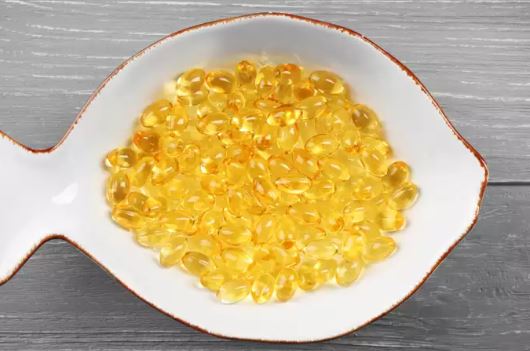Lifestyle
5 vegetarian substitutes for fish oil

Seeking the health advantages of Omega-3s but can’t stand the thought of fish oil? Getting enough of this important mineral can be difficult if you’re a vegetarian or vegan.
This is a thorough guide on choosing Omega-3 substitutes that are plant-based.
Let’s go over the science of Omega-3s, consider their vital function in your health, and look at the variety of plant-based alternatives to cod liver oil.
1. Algae capsules
Fish obtain their Omega-3 from the algae they eat, not from within. Large fish eat smaller fish, which in turn consume the ocean’s rich supply of omega-3 algae. You can have a plant source without sacrificing quality or health advantages if you go straight to the source—algae that are high in Omega-3. Thus, in tanks with pharmaceutical-quality conditions and free of the contaminants that sadly plague many of our current seas and oceans, scientists are cultivating this algae. As a result, a superior algae extract that is a plant-based source of Omega-3 DHA and EPA is manufactured and is available in tablets and capsules.
2. Flaxseed oil
Being one of the densest sources of the nutrient, flaxseeds are among the most well-known sources of omega-3. Flaxseeds have a high omega-3 content and are also a great source of fiber, protein, and minerals like manganese. Because they may be added to meals you regularly eat, flaxseeds are very simple to incorporate into your daily diet. For instance, flaxseeds are a fantastic addition to smoothies and a perfect topping for yogurt. But since flaxseed only contains ALA, you will be deficient in the essential omega-3 fatty acids EPA and DHA.
3. Walnuts
Of all the tree nuts, walnuts have the highest amount of ALA, making them one of the greatest plant-based sources of omega-3 fatty acids. They are also an antioxidant powerhouse and a nutritional powerhouse. Walnuts, with an ounce containing 2.58 grams, provide ALA along with additional health benefits. They offer a pleasing crunch to salads and combine well with cereals and trail mixes. Additionally, they can be mixed into pasta or spread on toast as part of pesto.
4. Chia seeds
Chia seeds are small, oval-shaped seeds that are high in fiber, antioxidants, minerals, and omega-3 fatty acids. Although they have been around since the ancient Mayan period, when they were renowned for their health advantages, they have recently become more and more well-liked as a nutrient-dense protein source. Chia seeds are a nutritious mainstay of vegan cookery and are used to make pudding and salad dressings. They are often combined with water to create the newest craze, chia seed water, and are a well-liked addition to smoothies.
5. Brussels sprouts
An excellent source of the omega-3 precursor ALA is Brussels sprouts. They are also an excellent source of fiber, protein, and vitamin C, among other nutrients. Brussels sprouts are a great side dish for dinner, whether they’re steamed with a little salt and pepper or sauteed with a little masala. Just remember to get your EPA and DHA elsewhere!







